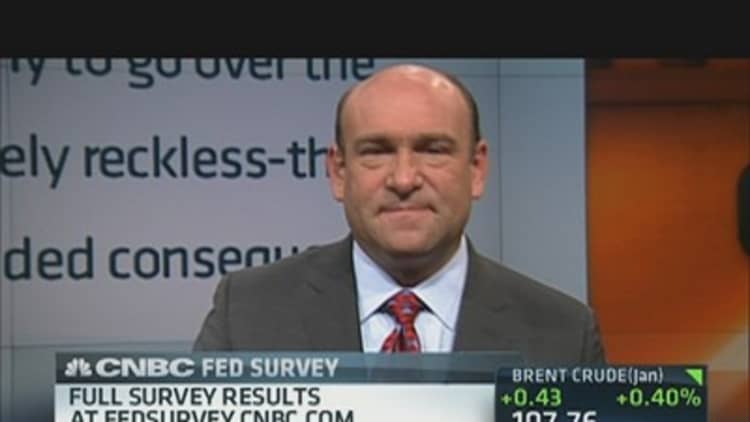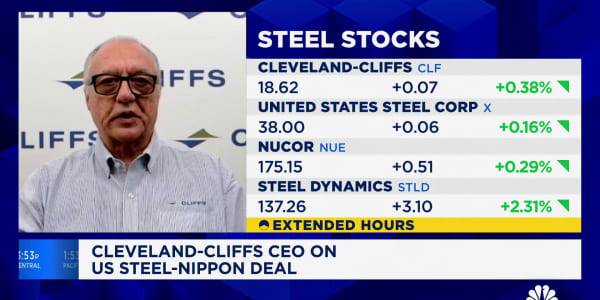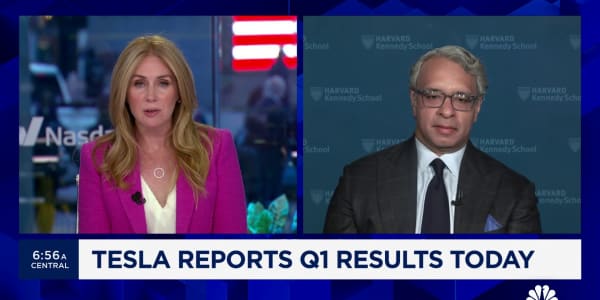Another year of modest growth, the peril of the "fiscal cliff" and a resurgence of debt problems in Europe may not sound like a recipe for a good stock market, but one Wall Street firm thinks a record-breaker is on the way.
Strategists and economists at Bank of America Merrill Lynch laid out their vision of 2013 on Tuesday, and it includes much to tantalize investors.
Among the predictions: The is on its way to 1,600, gold could hit $2,000 or even $2,400 an ounce, and the nascent housing recovery is about to gain speed. (Read More: Housing Affordability Begins to Slide)
Outside the U.S., China is expected to lead global growth and multinational companies will find favor after a year where American-focused companies were the best bet.
"We are pretty unapologetically bullish for 2013," Savita Subramanian, equity and quant strategist at BofA, told a crowded media gathering. "We think that a new high here for the market is not a very outlandish expectation."
The firm's predictions carry weight because it has been among the most accurate prognosticators on the Street, with a 1,450 S&P 500 target for 2012 well within reach in the market's final trading days of the year.
That prediction came even amid a corresponding expectation of weak growth—just 2.1 percent for the full year—that also turned out to be pretty accurate.
For 2013, BofA's pros said to expect more of the same.

Gains in gross domestic product for the U.S. likely will be just 1.5 percent, though the global economy is expected to pick up by 3.2 percent, a shade higher than this year's 3.1 percent.
Other predictions:
- Government bond returns will be between minus-3 percent and plus-2 percent
- U.S. and European Union corporate bonds will return between 2 and 7 percent.
- Global stocks will bring in 9 to 16 percent.
- Oil is likely to remain in a trading range around $90 a barrel but could plunge to $50 on the downside.
- The dollar and euro will be the strongest currencies amid the austerity measures.
At the core of the expectations for a powerful stock market is a thesis the firm calls the "Great Rotation" from fixed income into equities.
Even as the S&P 500 has gained more than 12 percent this year, investors have continued to pull money out of stock-based mutual funds and funnel it to bond funds. That could change this year as the returns from fixed income subside. (Read More: US Launches Probe Into Stock Sales by Company Executives: Report)
"What's the best thing about equities? Bonds," chief investment strategist Michael Hartnett said. "Historically, when we see a major inflection point in the bond market, you see the equity market break out of a long-term trading range."
The S&P index closed at 1,565 on Oct. 9, 2007, but never saw that level again as the financial crisis set in and dragged it all the way down to an intraday low of 666 in March 2009. Conversely, the market first saw its current level on Dec. 3, 1999.
But BofA sees the year ahead divided into two halves: The first, in which growth will be slow due in large part to residual effects of the "fiscal cliff" debate in Washington and debt problems in Spain, and the second when those issues are resolved and growth accelerates.
North American Economist Ethan Harris actually expects the U.S. to go over the cliff of tax increases and spending cuts for as much as three months, a folly that will exact a substantial toll. (Read More: Wall Street Worries Washington Will Wreck Economy: CNBC Survey)
"Don't go over the cliff. Don't do everything at the last second," Harris said as his advice to Congress. "And phase in whatever you're going to do."
The ultimate cliff resolution probably will entail $300 billion worth of austerity in the form of an elimination of the payroll tax holiday, a "small rate increase" on upper-income earners and a closing of some tax loopholes.
"Once the fiscal cliff is resolved business confidence and spending should come back. We are also optimistic about housing," he said. "There's a better story out there if we just get Washington out of the way for a while."






